By Kristin Anahit Cass
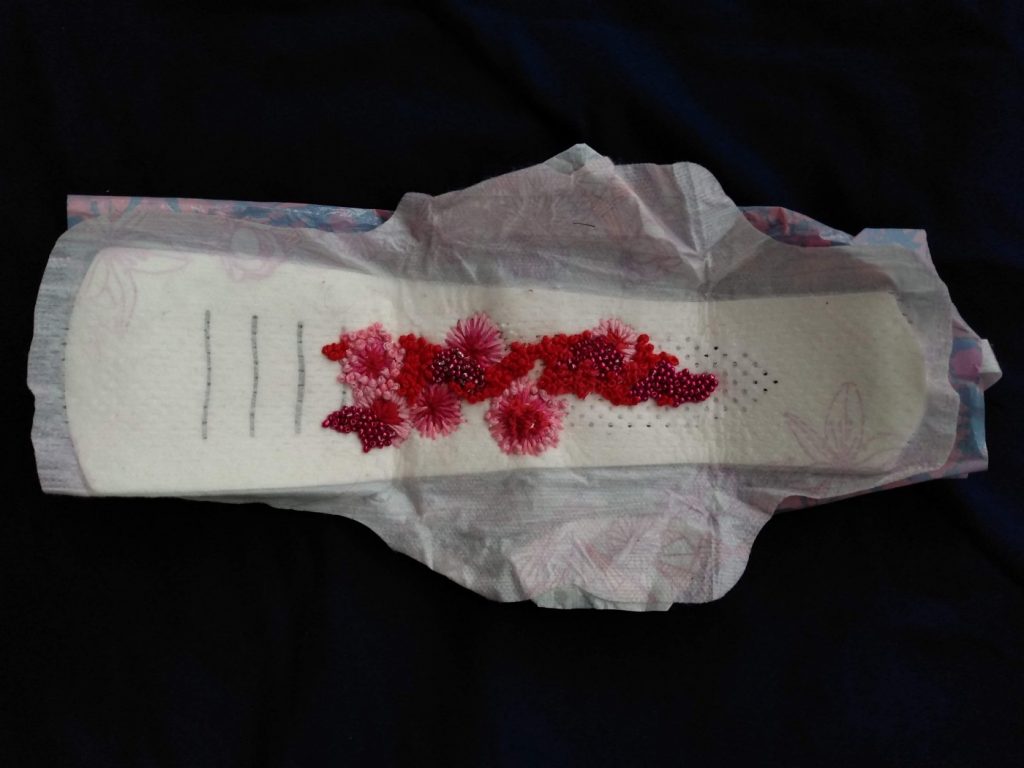
This article is done as a collaboration with Entanik, a global organization dedicated to uplifting and showcasing people in queer Armenian, SWANA, and allied communities.
In vibrant red threads on hanging sheets, clothes, and even pads, Zepure explores the shame and public rules that regulate a woman’s body. Zepure is a queer, interdisciplinary artist based in Yerevan. Their work often has a dreamlike quality while speaking to serious issues. They were busy working on some commissions and stopped to talk about their work and artistic practice with Entanik.
Kristin Anahit Cass: Tell me about your art work.
Zepure: I mostly work digitally these days, but I started out oil painting. Due to some health issues I couldn’t physically work with oils anymore, so I began working digitally about three years ago. It was a challenge at first because I’ve always been a bit afraid of technology. But it turned out to be great, very flexible, adaptive and creative.
KAC: There’s a mystical quality about your two-dimensional work that really draws me in. What’s behind that?
Z: A lot of it is based on my dreams, in a very abstract way. I have very vivid dreams, and I have anxiety too, so I have anxiety dreams. You know when you wake up after a really weird dream, and you’re like—what the fuck was that? And you spend the whole day thinking about it. So those works are my way of trying to figure that out. It feels like, oh just get that out of my head!
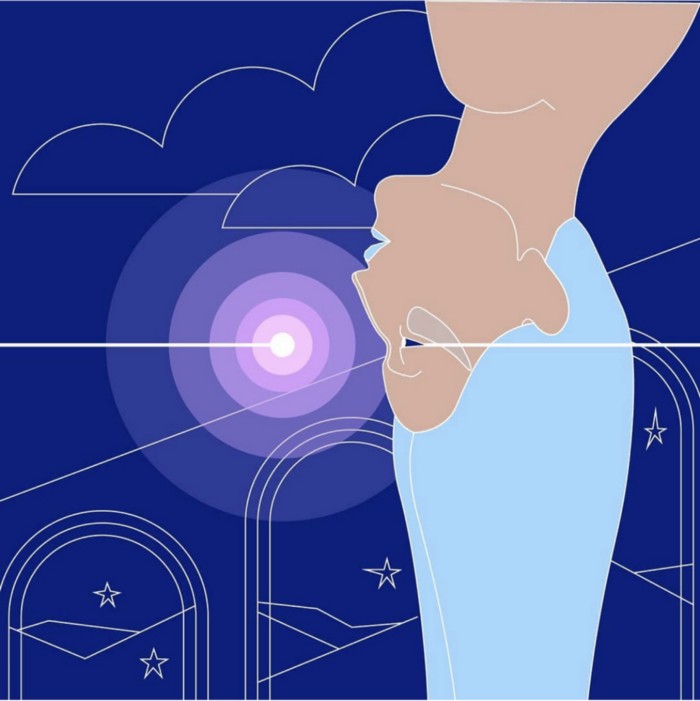
KAC: I also feel a strong social consciousness in your work. Can you talk a little bit about that?
Z: I like to think about what it’s like experiencing life not just from my perspective, but from the perspective of the people around me as well. Depending on who you are, life treats you differently, you know? I’m a woman, I’m Armenian, and I go through a lot of experiences that cis men wouldn’t go through. I’m also queer, which means I go through a lot of experiences that heterosexual women and men don’t go through. I discuss this through my work because I feel that it’s important for us to think about why we do things a certain way. A lot of times change just comes from awareness. A lot of people do things they’re not even aware of, myself included. I’ve recently noticed certain things in my life and thought: I don’t have to do this.
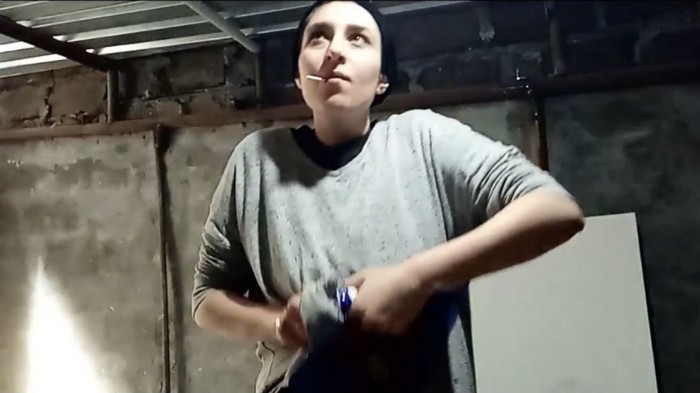
KAC: What are you thinking about?
Z: I think I’m a pretty open minded person and generally I don’t judge people at first. I like to get to know people, to appreciate who they are. But occasionally I find myself on the Armenian side of TikTok, and that brings up this very judgmental Armenian side of me. I’ll catch myself thinking, oh my god, what are you saying or oh wow that’s a risky thing to say. It’s pretty hypocritical, and when you see yourself in that context, it changes you.
KAC: What kind of commissions do you do?
Z: I think my favorite commission was designing for Zart.Global, the jewelry company.
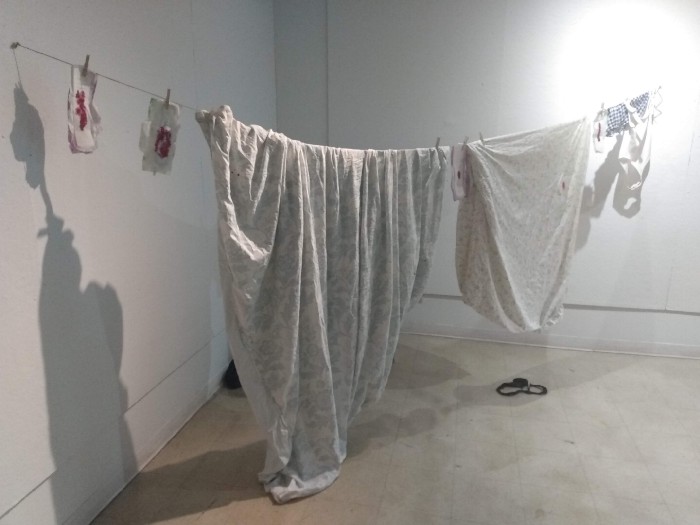
KAC: What other media do you enjoy working in?
Z: I like working with textiles, but I haven’t shared a lot of that work. I did this big project, Private Body Public Rules, where I embroidered what looks like period blood in red beads and embroidery floss, with bed sheets and clothes and sanitary pads. It was meant to talk about the shame that’s associated with menstrual cycles, and how we try to hide them. I’ve worried about sharing it on social media, keeping a certain aesthetic about it, and what if I ruin that?
KAC: I love the concept of a traditionally “feminine” medium like embroidery embodying our blood and confronting the viewer directly. It seizes the shame narrative, releasing it and facing us with the beauty and creative power of the female body instead. An important project, since it addresses the shame that many women have faced about their own bodies. I’m excited to share that work publicly for the first time with our Entanik community.
KAC: Being out sometimes feels risky for Armenians. What’s that like for you?
Z: So it’s funny because I’ve officially come out to maybe five friends in my life. If I make new friends, I give them like my personal Instagram page and my art page, and on my art page, I’m just out. They just get it and I never actually have that conversation. I just wait for them to get it. You know, being queer it’s like you have to keep coming out constantly, all the time. And it’s a little scary. So, if they know, they know, I don’t hide it and I don’t create those conversations. I think with strangers in your day to day life, to even have to explain yourself, even if you’re not directly afraid or you’re not afraid of rejection, it still takes a lot out of you. People will ask the darndest questions, people will just say the weirdest things, they’ll be like, “But why?” How do you even try to explain that to someone? I don’t know.
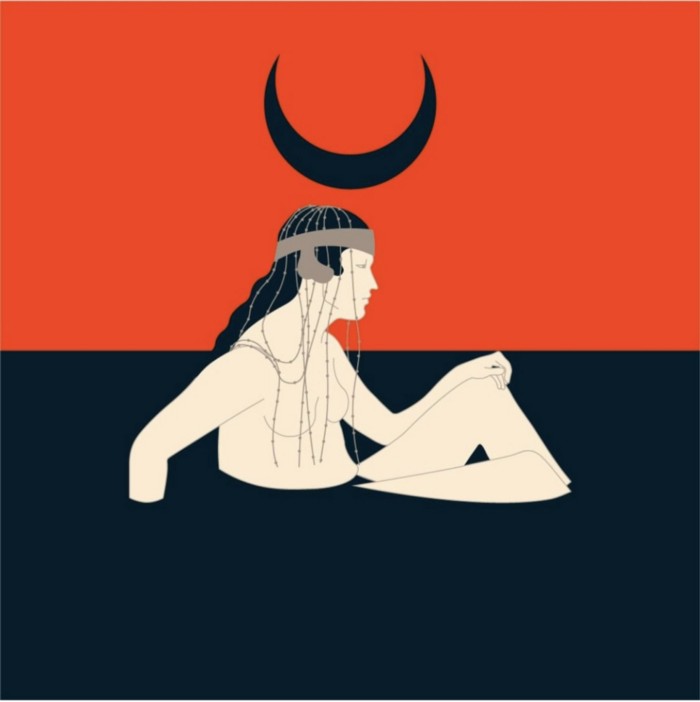
KAC: What’s ahead for you?
Z: It takes a long time to grow as an artist, so I don’t expect too much right away. I want to go into art therapy. I want to bring that field to Armenia because therapy generally is not very evolved here. There are really no standards of practice, or really of education. A lot of people I know have really been screwed over by therapists who push their own agendas instead of actually being professional in doing their job. For people with disabilities or trauma, there are no resources to deal with what’s going on inside them, especially within the context of the 2020 war. We have a lot of veterans, a lot of really young men who have come back from the war injured physically and emotionally, with no resources and no supportive community to actually talk about what they went through and to try to process that. So we’re a country with a lot of very traumatized people, and I think if we want to grow in the future in any way, if we want our community to change and become more accepting, actually looking to the future, I think art therapy would be very important here.
I’m getting my bachelor’s in Fine Arts, focusing on art therapy. I’m hoping to get a master’s in art therapy in the future. I want to get a good, solid understanding from an education in the US because I think art therapy has really taken off there. I think a lot of artists are usually in their own little worlds, which isn’t a bad thing. They focus on creating, which is great, and definitely enough. But I also want to have the opportunity to give back somehow. To teach others to create art, to teach others how to express themselves the way I can. I think it’s important to do that. It takes as little as encouraging a little kid, because a lot of kids think they can’t draw. But of course they can.
KAC: Is there anything else you’d like to share?
Z: Well, as a final message for people, yes. If you love and accept yourself, you’re going to see the world in different colors. You’re going to see a lot more love and acceptance from the world if you have that within yourself.
Find them on Instagram @flatdimensions